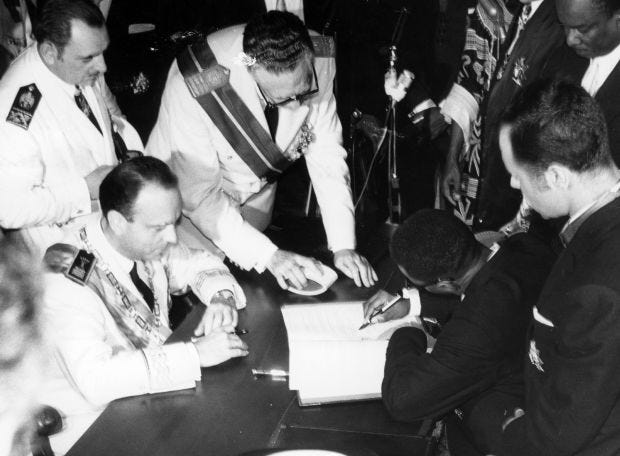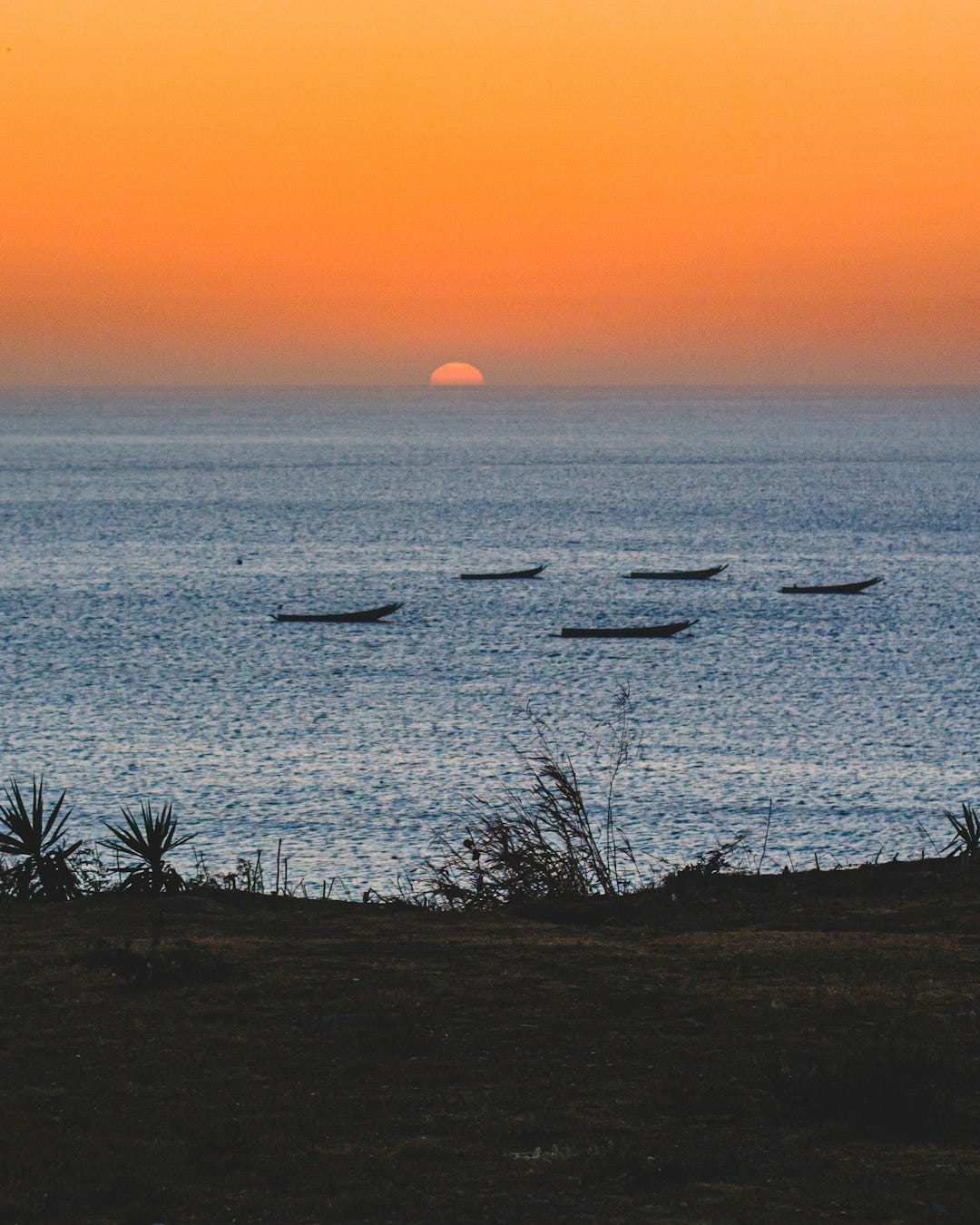🔅 Malawi's Farmers Get a Digital Green Thumb
Senegal Begins Oil Production, and Greece Faces Scrutiny Over Migrant Deaths
Image of the Day

Spotlight Stories
AI Lends a Helping Hand to Malawi's Subsistence Farmers
In the village of Ndodo, just 25 miles south of Malawi's capital Lilongwe, a group of farmers huddle under an acacia tree, eagerly listening to a voice emanating from a smartphone. No, it's not the latest catchy tune – it's an AI-powered app called Ulangizi, which translates to "Advice," dishing out tips on how to combat a weevil that's been wreaking havoc on their sweet potato crops.
Ulangizi is one of the first examples of AI being used to support subsistence farmers in some of the world's poorest regions. The app, which works on WhatsApp, harnesses the power of ChatGPT and the Malawian government's English-language agricultural manual to answer questions and diagnose crop and farm animal diseases.
For the 3.1 million families who rely on smallholder farming for their livelihood in Malawi, Ulangizi could be a game-changer. As Anna Chimalizeni, a government farmer-support agent, puts it, "The majority of our people do not know how to read or write. I am there to help them write issues they have at their farms and read the response on their behalf. They also have a chance to listen to the response through voice notes which come in our own local language." Talk about a personal assistant!
Overcoming Challenges
While AI is increasingly being used in agriculture in developed nations, its emergence in poorer countries and for subsistence farmers is a relatively new phenomenon. The success of Ulangizi in Malawi, where small-scale agriculture provides a livelihood for more than 80% of the country's 21 million people, could pave the way for its introduction in other parts of the world.
But, as with any new technology, there are challenges to overcome. In Ndodo, there's only one smartphone for 150 villagers, which means sharing is caring when it comes to accessing Ulangizi. Additionally, connectivity isn't universal in Malawi, and data costs, while among the lowest in Africa, can still be a burden for farmers in one of the continent's poorest nations.
Despite these hurdles, the app is already making a difference. With the app's help, farmers could not only navigate the consequences of climate disasters like Cyclone Freddy but also prepare for them. And who knows? Maybe one day, Ulangizi will be the go-to digital agronomist for all 600 million smallholder farmers worldwide, helping them grow a third of the world's food with a little AI-powered advice.
Senegal Begins Oil Production
Senegal Coast: Jean-Karim Dangou
Senegal has begun producing oil for the first time, marking a significant milestone for the West African nation.
The Sangomar deep-water project, which also has gas reserves, aims to extract 100,000 barrels of oil per day.
Thierno Ly, the general manager of Senegal's national oil company Petrosen, declared the start of a "new era" for the country, expressing optimism about the opportunities for growth, innovation, and socio-economic development.
President Faye's Promise of Responsible Management
President Bassirou Diomaye Faye, who was elected in April, has assured the nation that profits from the sale of oil and gas will be "well managed." In a speech to students, he announced the establishment of an "inter-generation fund" to benefit current and future generations.
Frantzou Fleurine
The president's commitment to responsible management of the country's natural resources aligns with the reforms he promised during his election campaign.
As part of these reforms, President Faye and his administration have been keen on renegotiating the oil and gas deal with Woodside, an Australian energy giant. Petrosen currently holds an 18% stake in the project, while Woodside owns the remainder.
Prime Minister Ousmane Sonko, a former opposition politician who played a key role in the president's election campaign, has insisted that contracts signed by previous administrations were "unfavourable" to Senegal and must be reviewed to increase the nation's stake in these projects.
While some analysts view Senegal's move to renegotiate oil and gas contracts as potentially unsettling for investors, government supporters argue that it is crucial for the nation to secure a larger share of its natural resource wealth.
The administration's stance on contract renegotiation reflects a growing trend among resource-rich African nations seeking to ensure that their populations benefit more directly from the exploitation of their natural resources.
Greek Coastguard Implicated in Dozens of Migrant Deaths, Witnesses Claim
The Greek coastguard has been accused of causing the deaths of more than 40 migrants in the Mediterranean over a three-year period, according to a BBC investigation. Witnesses allege that the Greek authorities have engaged in forced returns, pushing people back towards Turkey, which is illegal under international law.
In some cases, migrants claim they were deliberately thrown into the water, resulting in fatalities.
The BBC analyzed 15 incidents between May 2020 and 2023, which resulted in 43 reported deaths. While verifying such accounts is challenging, the BBC was able to corroborate accounts by speaking with eyewitnesses in four of these cases. The Greek coastguard strongly rejects all accusations of illegal activities.
Disturbing Patterns and Chilling Accounts
There appears to be a clear pattern in the incidents. Migrants reported being thrown directly into the sea by Greek authorities, even after landing on Greek islands. In some cases, they were put onto inflatable rafts without motors, which then deflated or appeared to have been punctured.
One particularly chilling account comes from a Cameroonian man who claims he was hunted by Greek authorities after landing on the island of Samos in September 2021. He described how he and two others were transferred to a Greek coastguard boat, where they were beaten and thrown into the water without life jackets. The survivor managed to swim to shore, but the bodies of the other two were later recovered on the Turkish coastline.
The investigation serves as a stark reminder of the human cost of policies that prioritize border control over human life and the urgent need for a more compassionate and lawful approach to migration.
Food for Thought
“The worlds of the elders do not lock all the doors; they leave the right door open."
— Zambian Proverb







